Every developer encounters errors—syntax mistakes, undefined variables, failed database connections. For beginners in PHP, PHP error handling & debugging are essential skills. Poorly handled errors can crash applications or expose sensitive information to users. On the other hand, structured error handling improves user experience, system stability, and security.
In interviews, questions around PHP error handling often test your knowledge of exception handling, error reporting levels, and debugging tools. Let’s break it down.
Types of Errors in PHP
PHP errors can be broadly classified into:
1. Parse Errors (Syntax Errors) – Caused by typos or missing characters.
echo "Hello World" // Missing semicolon causes a parse error
2. Fatal Errors – When PHP cannot continue execution.
Example: calling an undefined function.
3. Warning Errors – Non-fatal; execution continues.
include("non_existing_file.php"); // Warning, script continues
4. Notice Errors – Minor errors like using an undefined variable.
Error Reporting in PHP
PHP allows developers to control what errors are displayed:
<?php error_reporting(E_ALL); // Report all errors ini_set('display_errors', 1); // Show errors on screen
👉 In production, never display errors directly to users. Instead, log them:
ini_set('log_errors', 1); ini_set('error_log', '/var/log/php_errors.log');
Exception Handling in PHP
PHP introduced exceptions for structured error handling.
Basic Example:
<?php function divide($a, $b) { if ($b == 0) { throw new Exception("Division by zero is not allowed"); } return $a / $b; } try { echo divide(10, 0); } catch (Exception $e) { echo "Error: " . $e->getMessage(); }
👉 Output:
Error: Division by zero is not allowed
Custom Exception Classes
class InvalidAgeException extends Exception {} function registerUser($age) { if ($age < 18) { throw new InvalidAgeException("User must be 18 or older"); } return "User registered successfully"; } try { echo registerUser(15); } catch (InvalidAgeException $e) { echo "Registration Failed: " . $e->getMessage(); }
👉 Creating custom exceptions makes your codebase more descriptive and easier to maintain.
Debugging Techniques in PHP
Debugging is about finding the root cause of errors quickly.
1. Using var_dump and print_r
$user = ["name" => "Karthick", "role" => "Admin"]; var_dump($user);
2. Using Xdebug
Xdebug is a PHP extension that provides:
- Step debugging.
- Stack traces.
- Profiling.
- Code coverage.
3. Logging
Always log errors in production instead of displaying them.
4. dd() and dump() in Laravel
Laravel developers use dd() (die and dump) for quick debugging
$user = User::find(1); dd($user);
Common Mistakes Beginners Make
- Displaying errors directly in production (security risk).
- Using
@(error suppression operator) excessively. - Not differentiating between warnings and fatal errors.
- Failing to use
try-catcharound database queries or file operations.
Sample Interview Questions & Answers
Q: What’s the difference between error and exception in PHP?
A: An error is a system-level issue (syntax, memory). Exceptions are program-level events that can be caught and handled.
Q: What does error_reporting(E_ALL) do?
A: It tells PHP to report all errors, warnings, and notices.
Q: Why should you avoid displaying errors in production?
A: Exposed errors may reveal sensitive paths, SQL queries, or server details, leading to security vulnerabilities.
Q: What is the use of finally block in PHP exception handling?
A: The finally block always executes, regardless of whether an exception occurred, useful for cleanup (like closing DB connections).
Q: How can you debug PHP applications efficiently?
A: Use tools like Xdebug, logging, and Laravel’s dd() function for quick inspection.
Q: How does Laravel handle errors differently from vanilla PHP?
A: Laravel uses a centralized error handler (App\Exceptions\Handler) and integrates with logging tools like Monolog.
Closing Note
PHP Error Handling & Debugging are critical for building secure, stable, and professional applications. As you progress into frameworks like Laravel, you’ll find structured error handling, logging, and debugging tools that make life easier.
Continue Your PHP Mastery Journey
Ready to level up your PHP skills? Explore our comprehensive PHP development series:
📚 PHP Fundamentals Series
🔗 PHP Basics for Web Developers
Start here if you’re new to PHP → Master variables, functions, and core syntax
💡 Common PHP Myths Busted
Separate fact from fiction → Discover what PHP can really do in modern web development
⚡ Understanding PHP OOP Concepts
You are here! → Classes, inheritance, interfaces, and design patterns explained

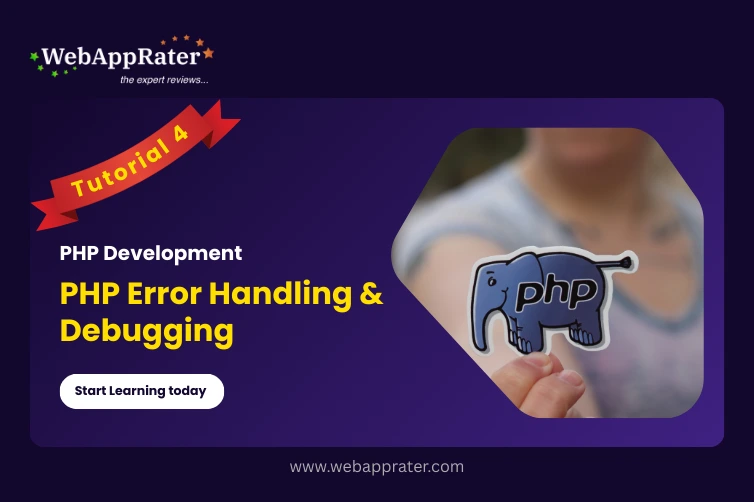



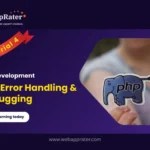





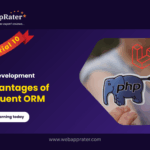





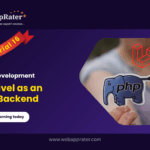

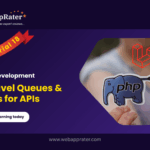

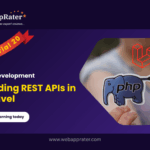



0 Comments